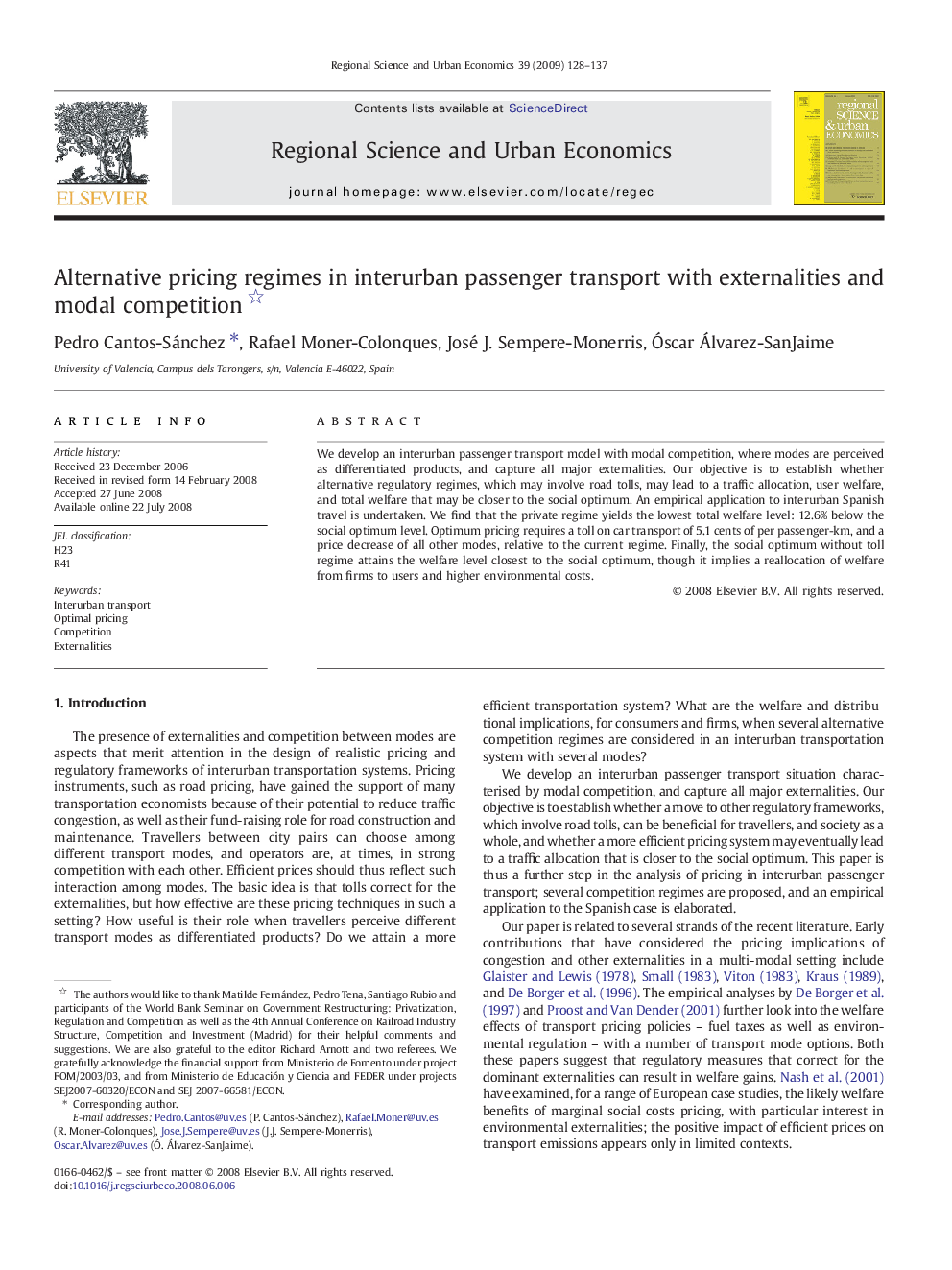| Article ID | Journal | Published Year | Pages | File Type |
|---|---|---|---|---|
| 984093 | Regional Science and Urban Economics | 2009 | 10 Pages |
We develop an interurban passenger transport model with modal competition, where modes are perceived as differentiated products, and capture all major externalities. Our objective is to establish whether alternative regulatory regimes, which may involve road tolls, may lead to a traffic allocation, user welfare, and total welfare that may be closer to the social optimum. An empirical application to interurban Spanish travel is undertaken. We find that the private regime yields the lowest total welfare level: 12.6% below the social optimum level. Optimum pricing requires a toll on car transport of 5.1 cents of per passenger-km, and a price decrease of all other modes, relative to the current regime. Finally, the social optimum without toll regime attains the welfare level closest to the social optimum, though it implies a reallocation of welfare from firms to users and higher environmental costs.
